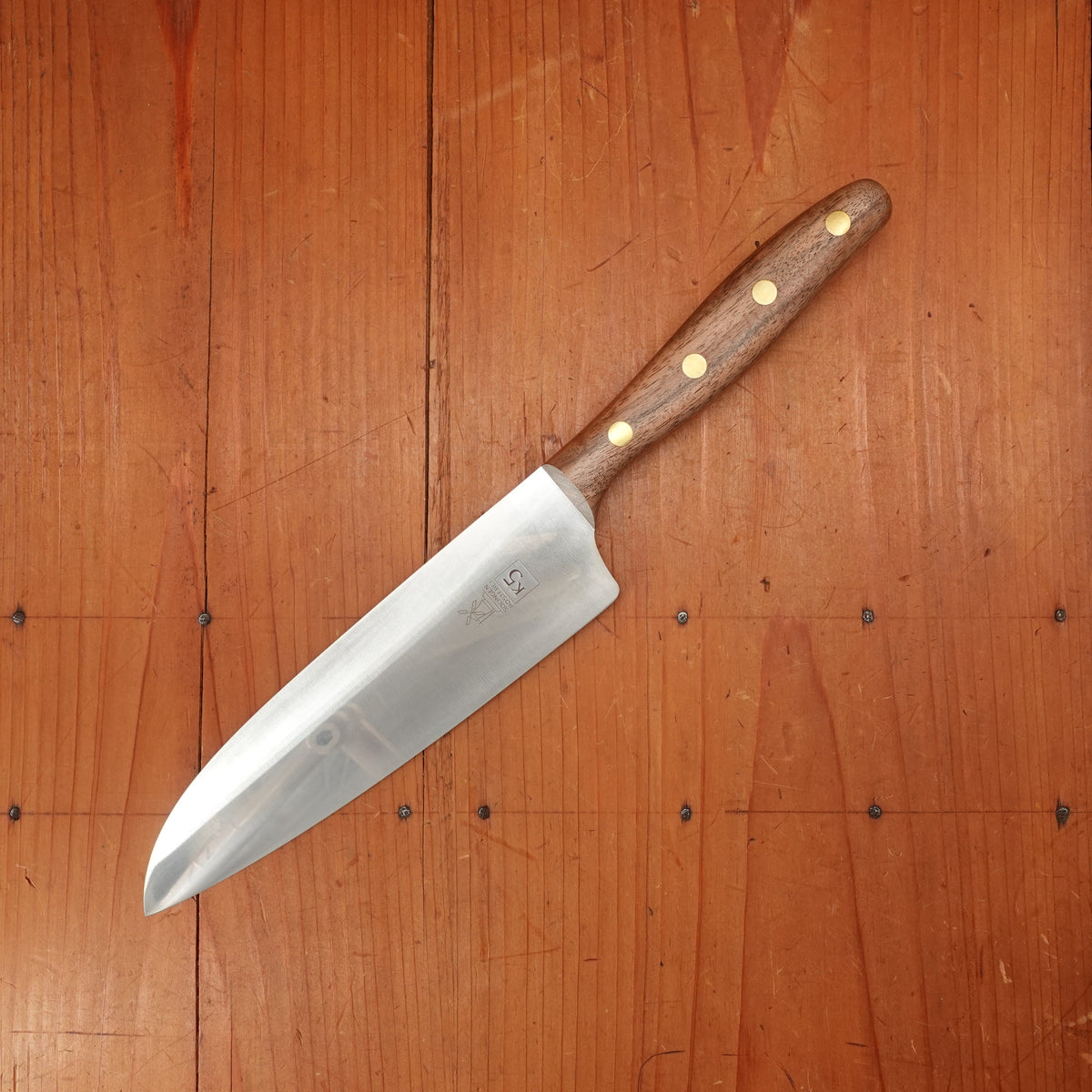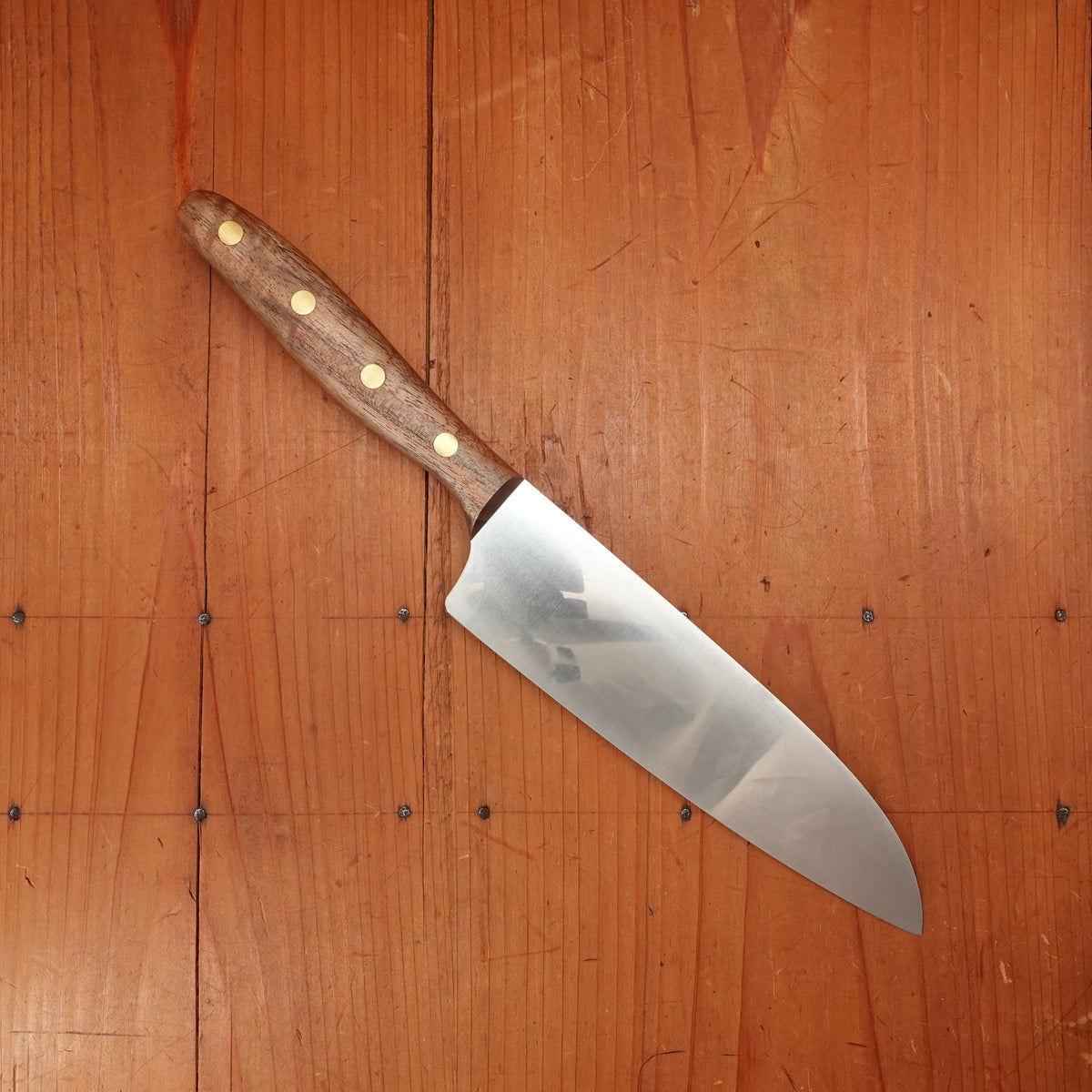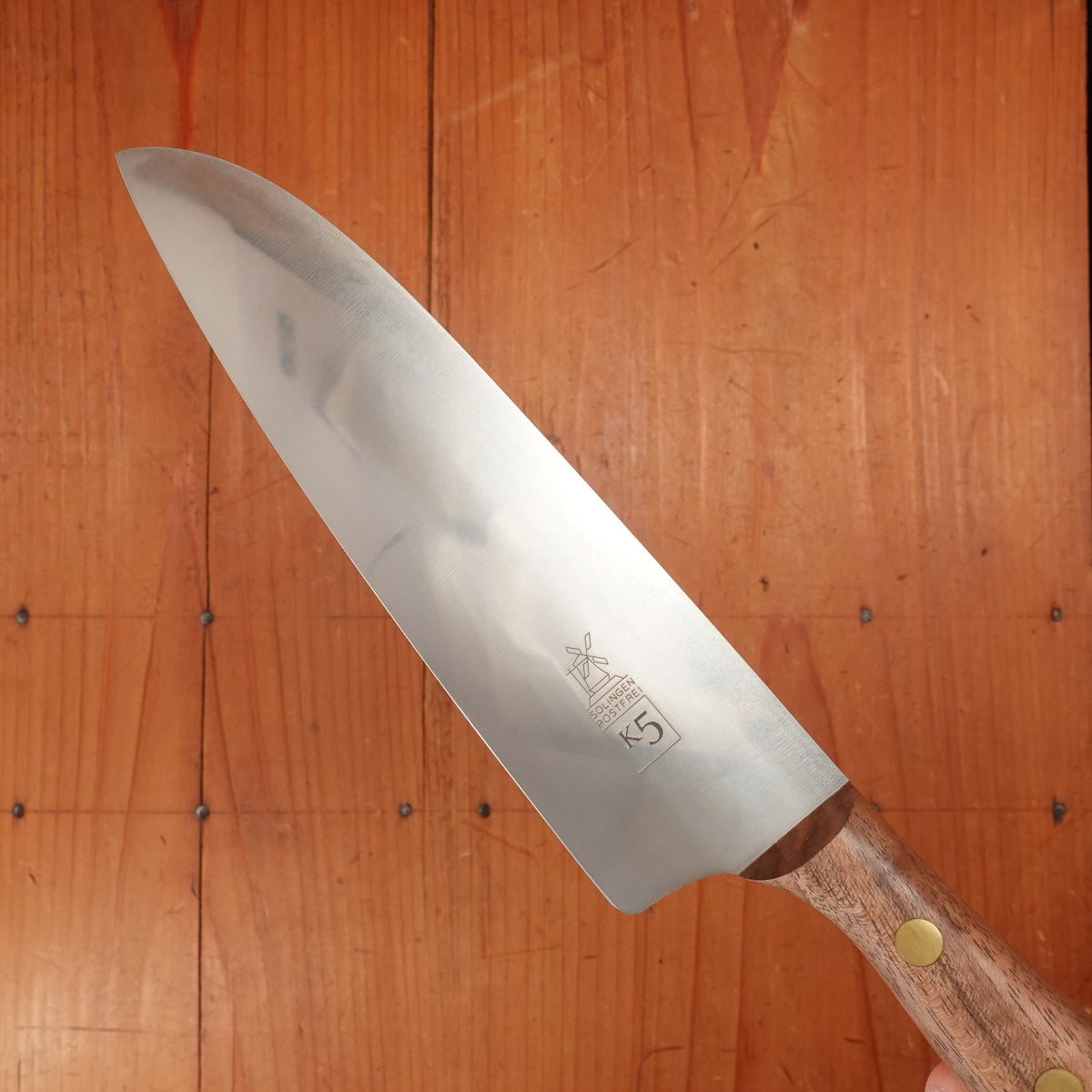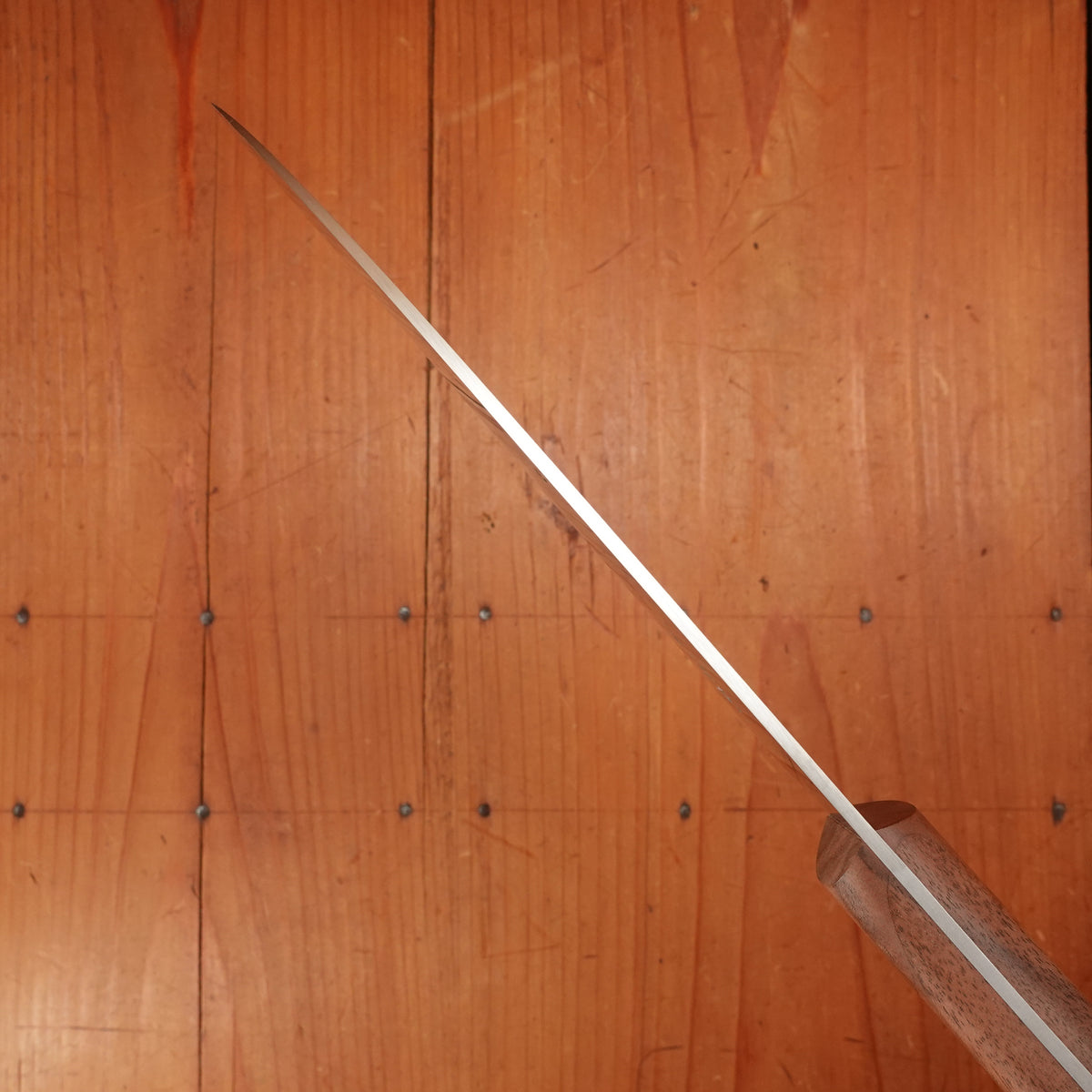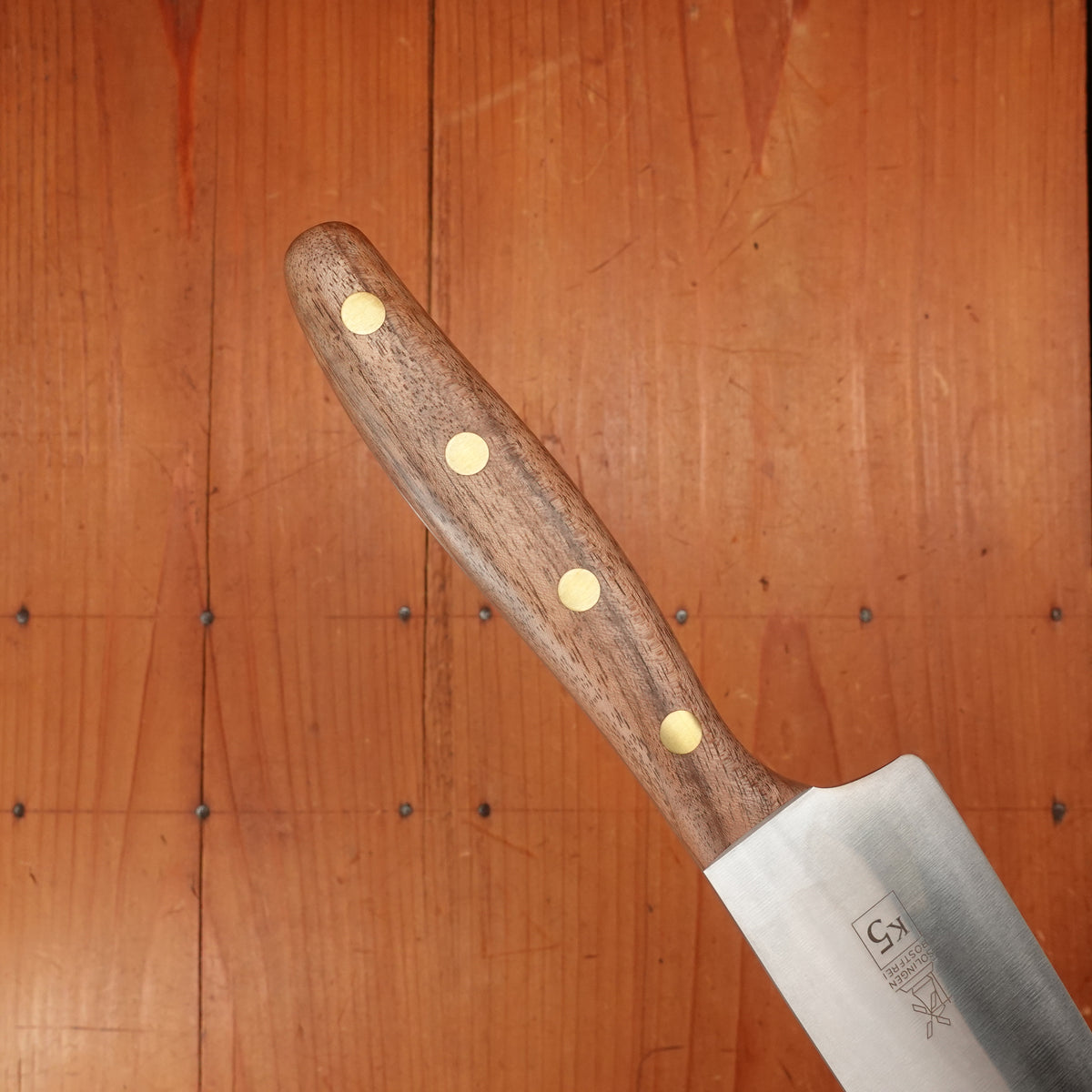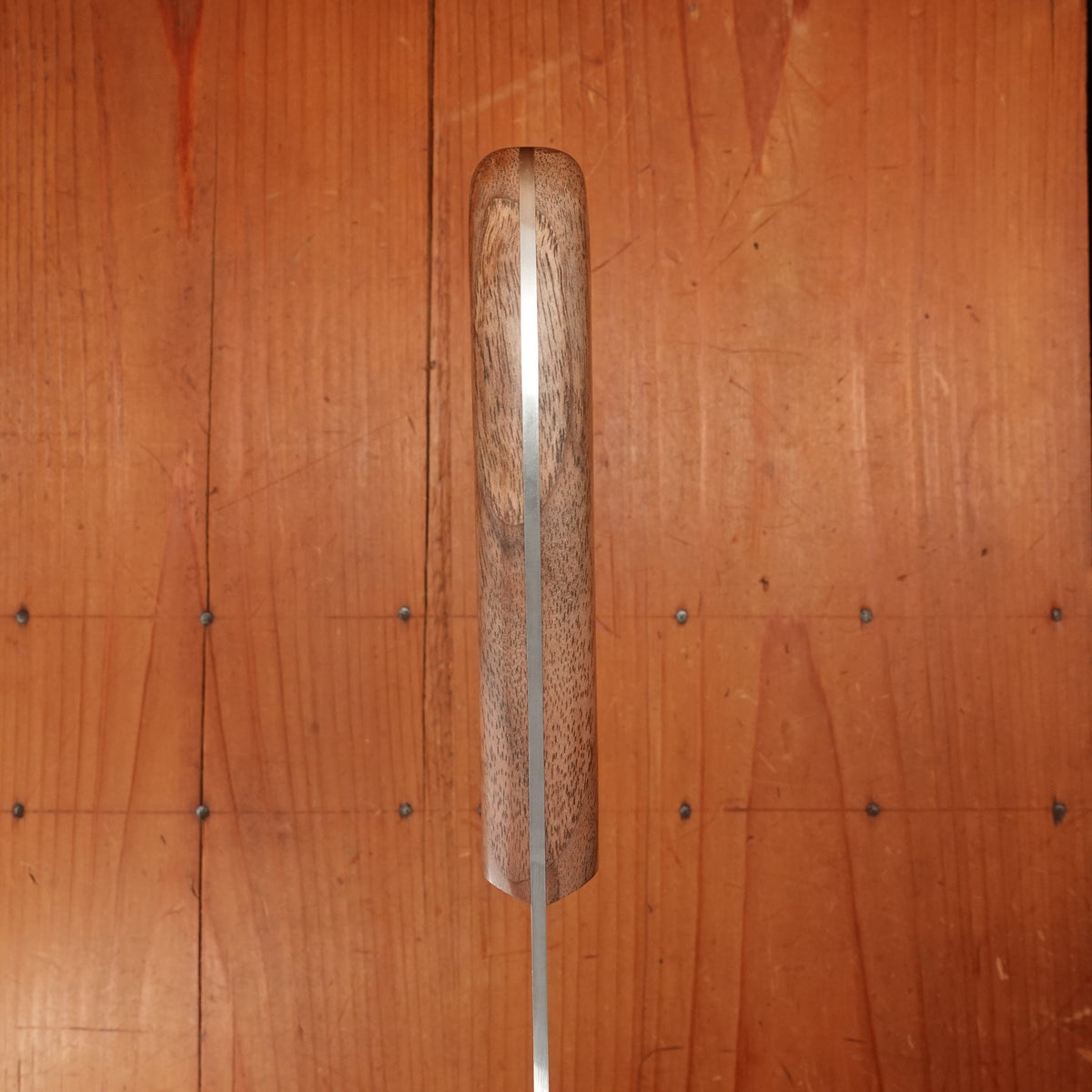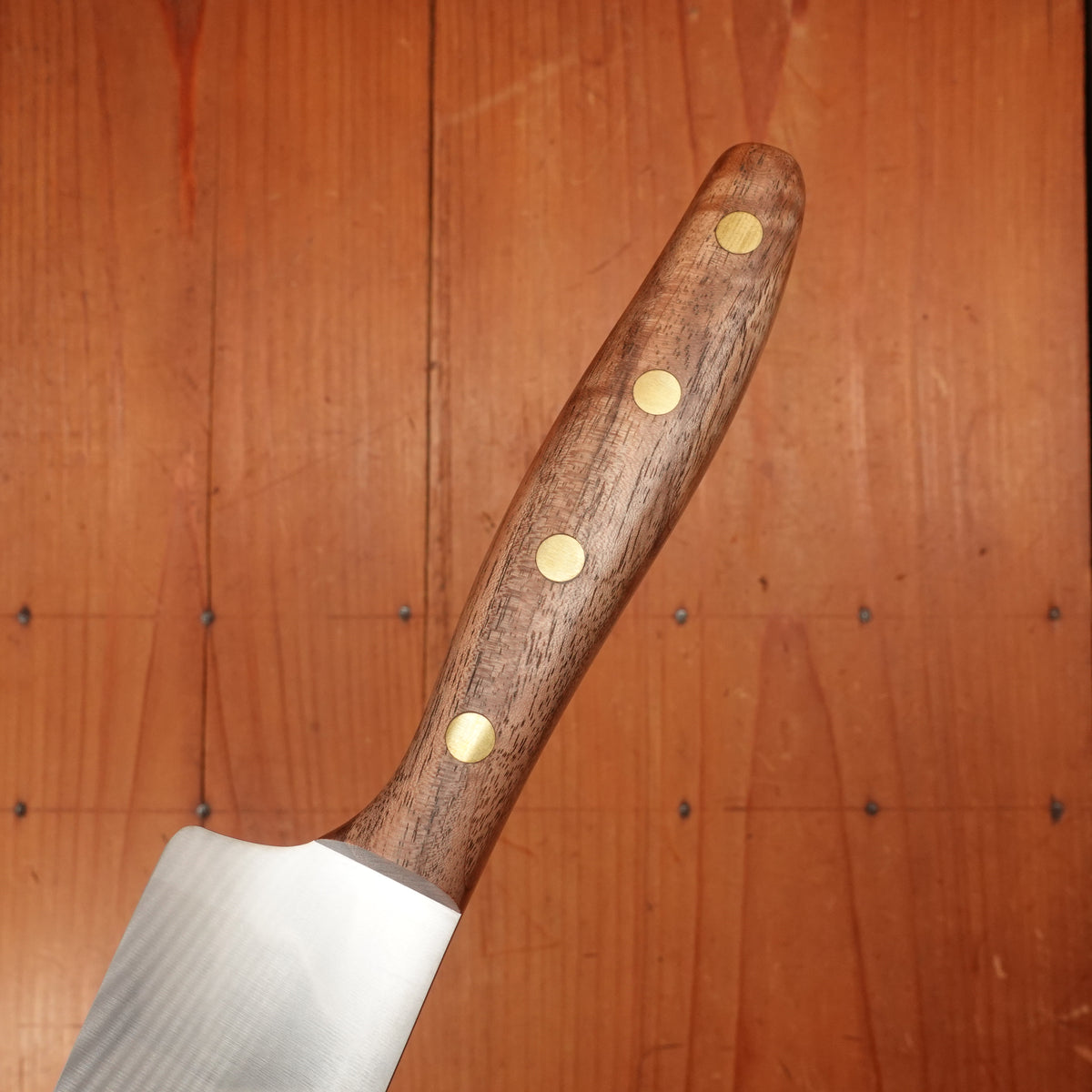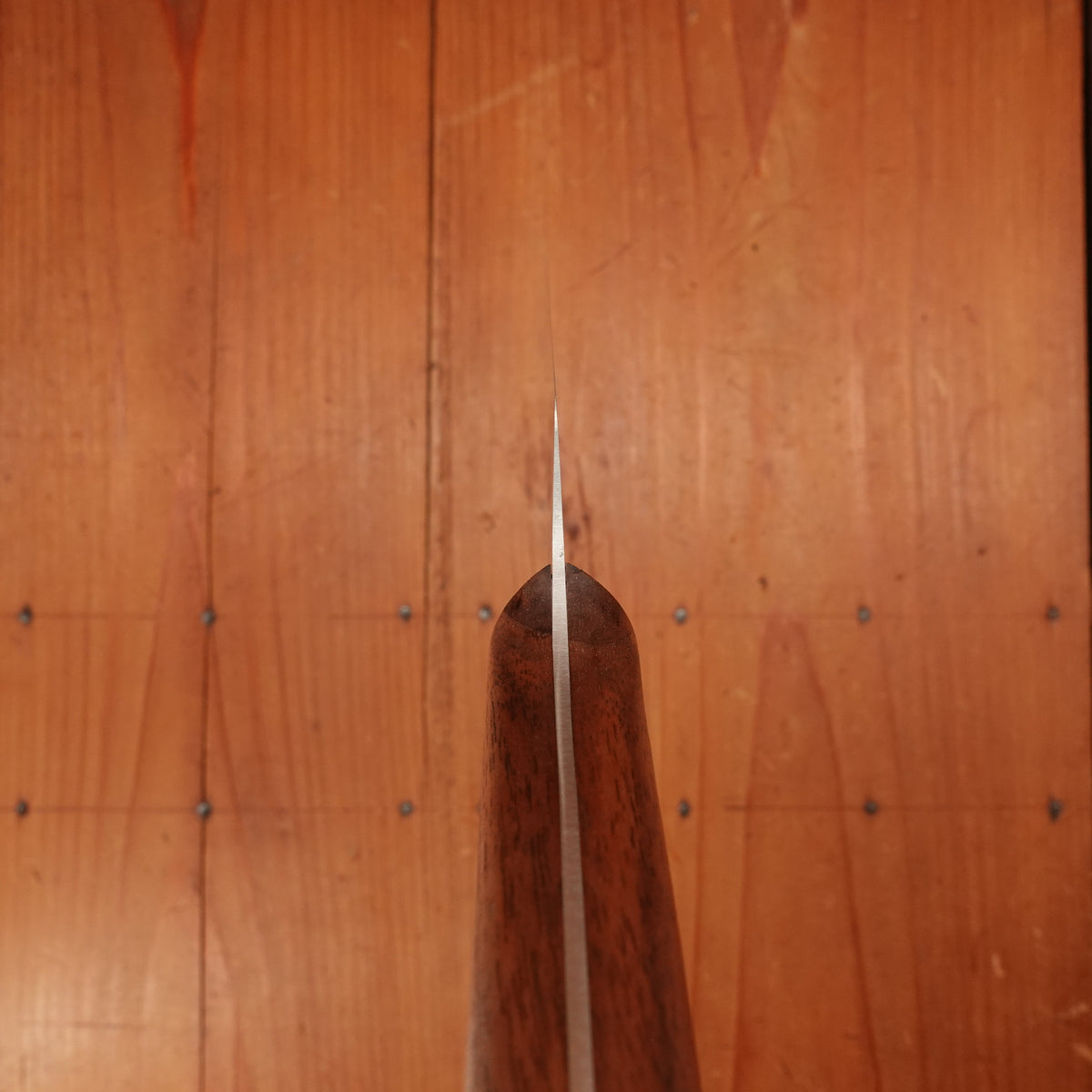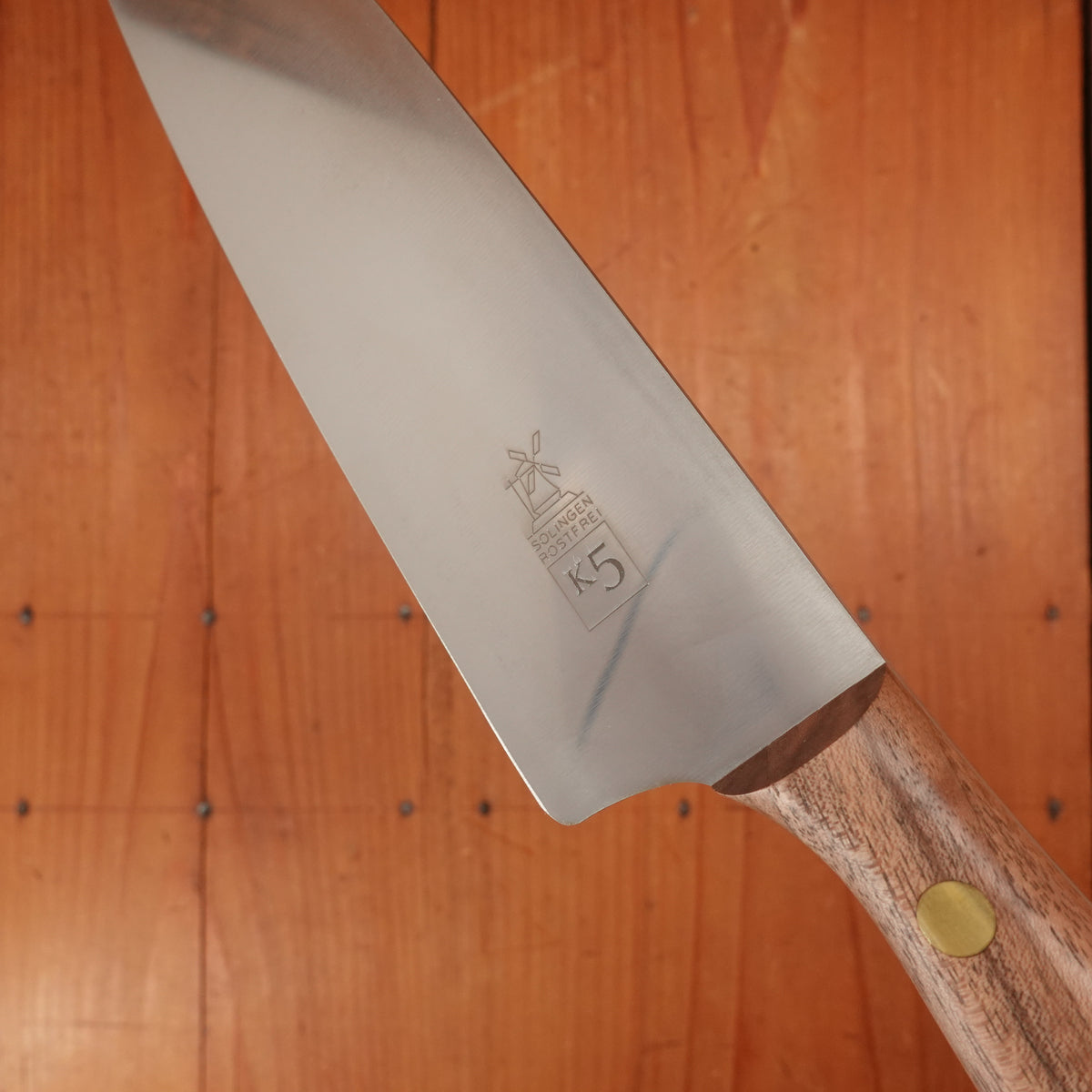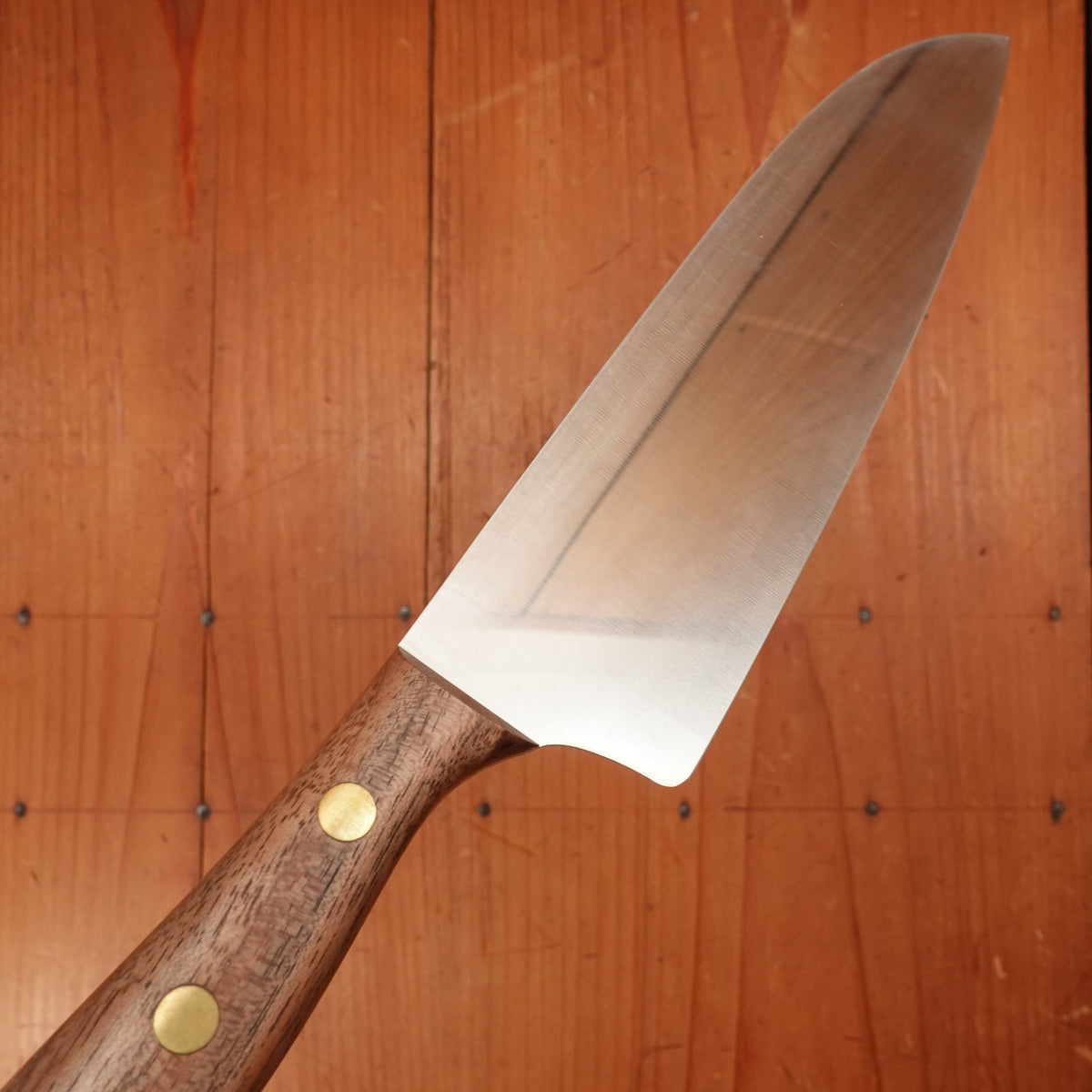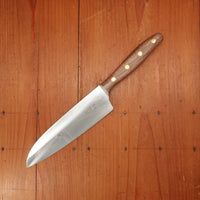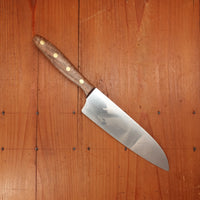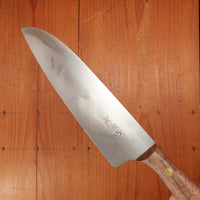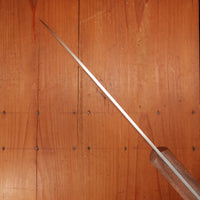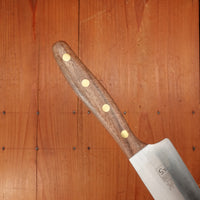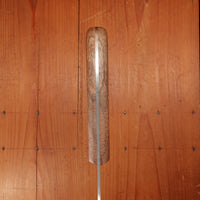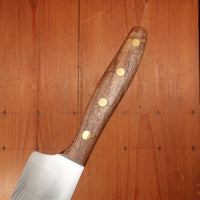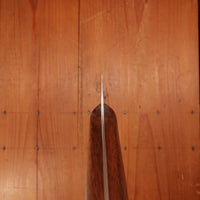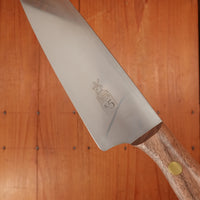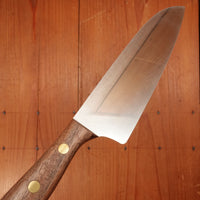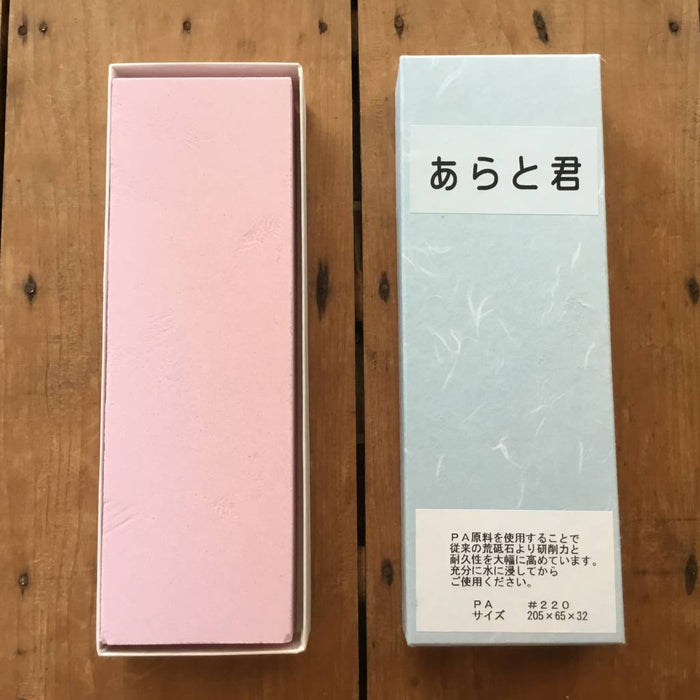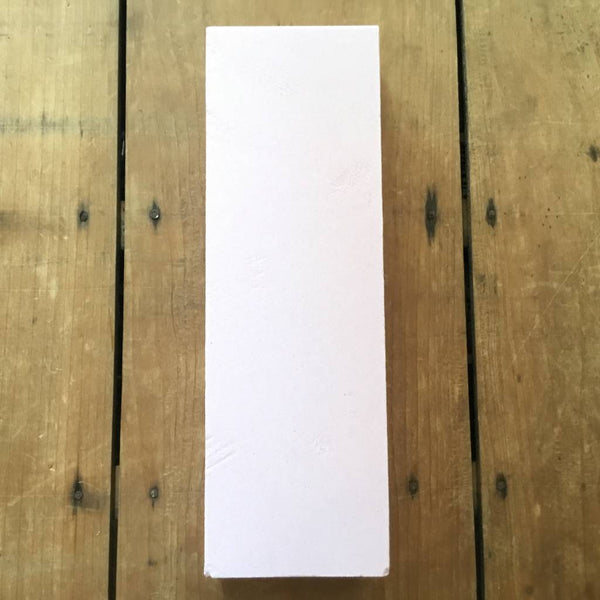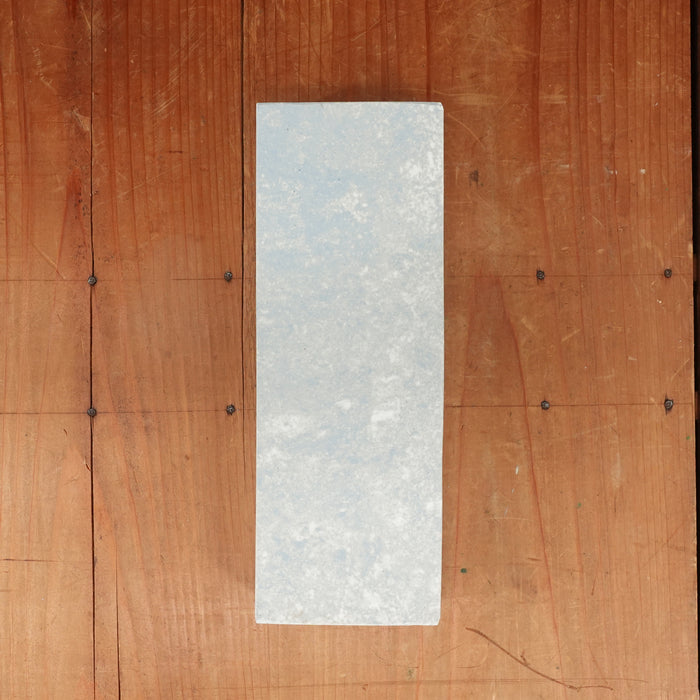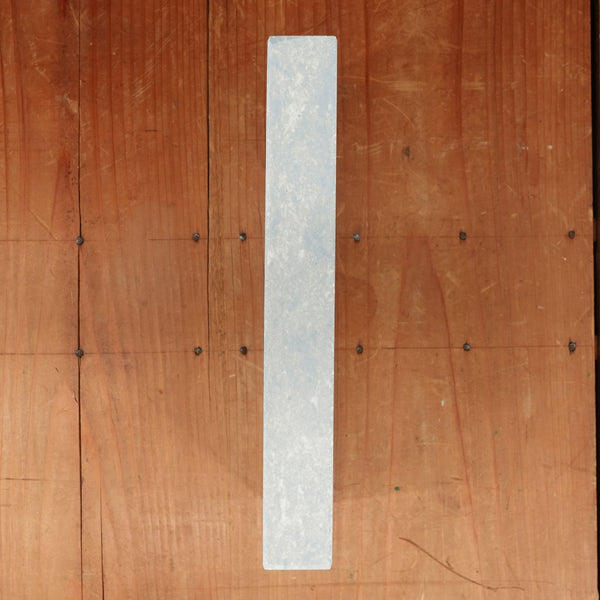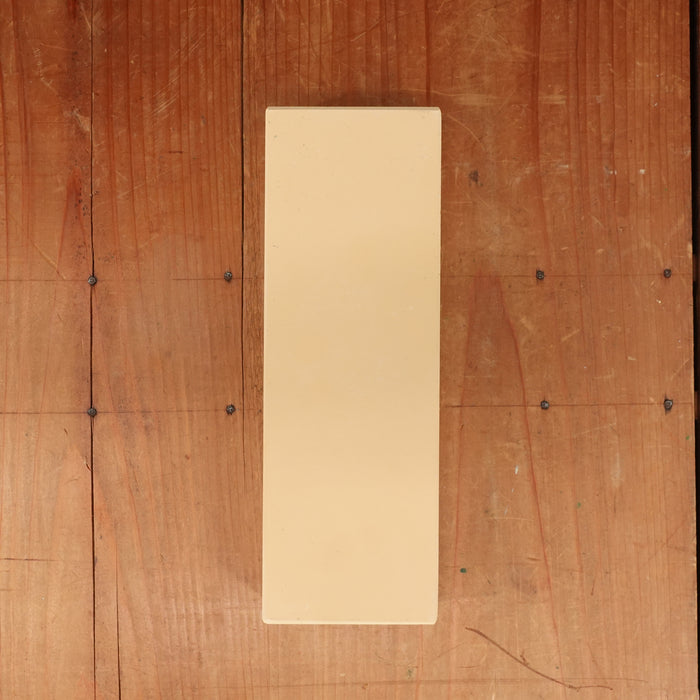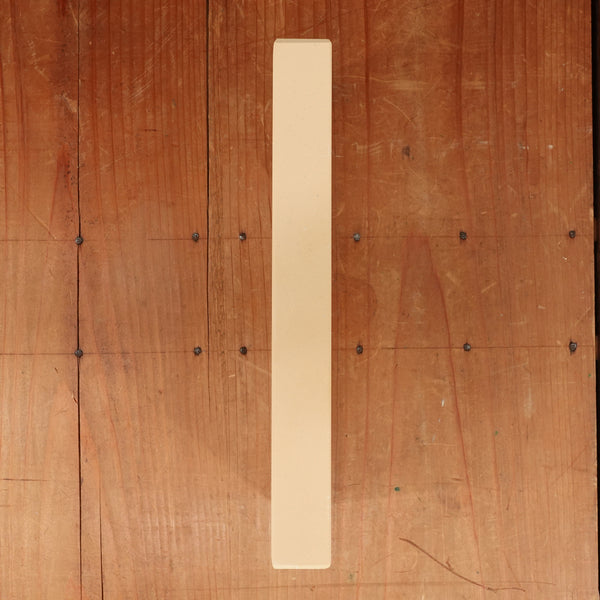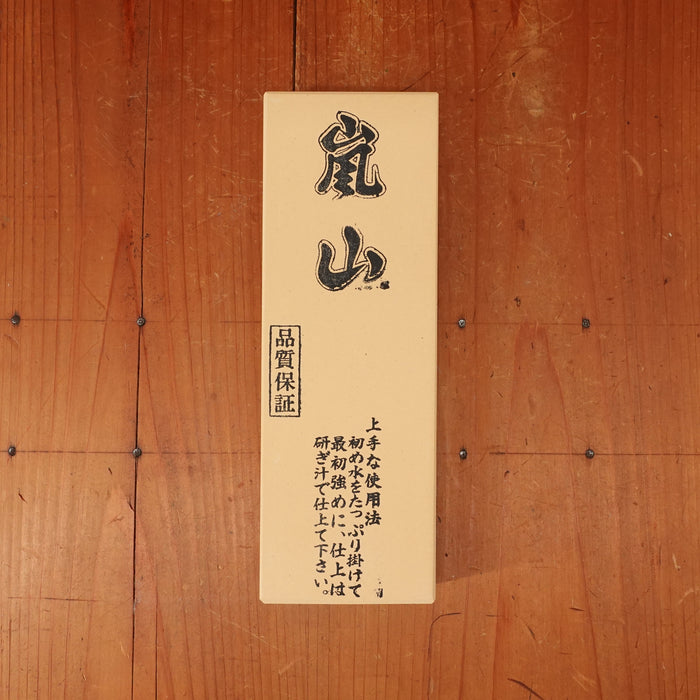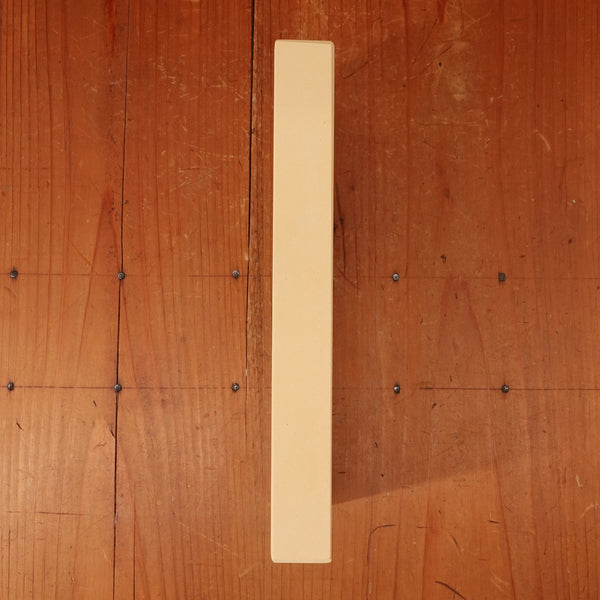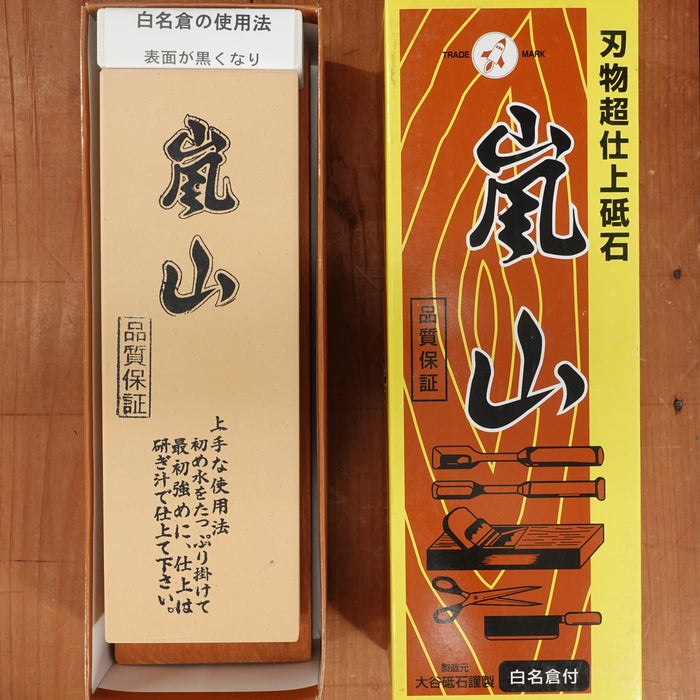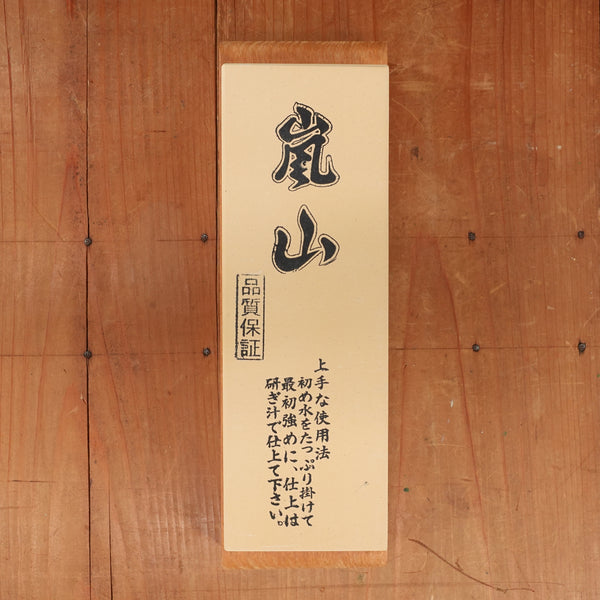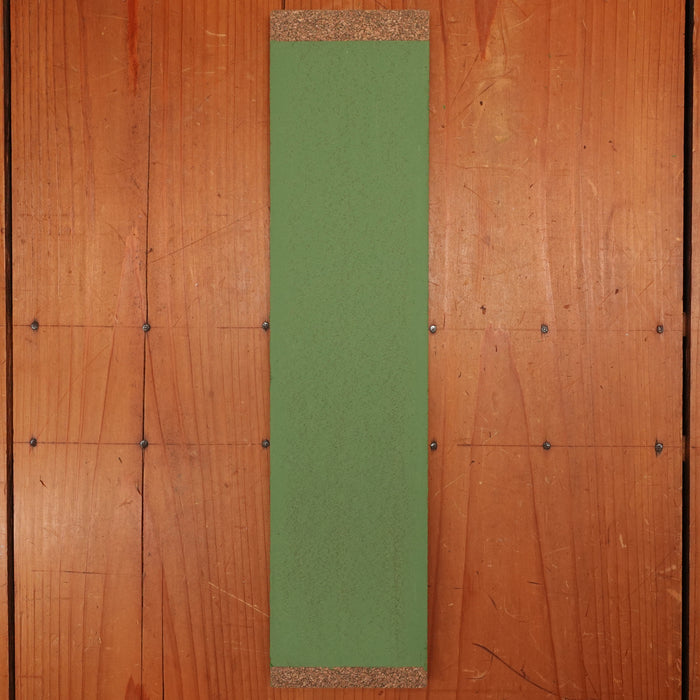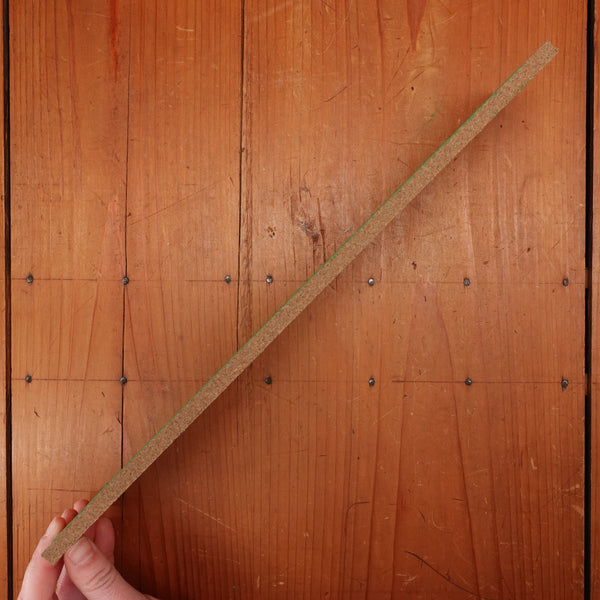Windmühlenmesser K5 6.75" Santoku Stainless Walnut Handle
-
Regular Price
-
€238,31
-
Sale Price
-
€238,31
-
Regular Price
-
Sold Out
-
Unit Price
- per
- Regular Price
- €238,31
- Sale Price
- €238,31
- Regular Price
- Unit Price
- per
The Windmühlenmesser K series knives are inspired by classic Japanese double bevel designs. They have thin geometry and are easy to sharpen, making them a shop favorite. The blades feature a 'blue' glaze, a shiny final polish from natural stone powder. The ergonomic handles are hand polished and shaped.
These are made with a proprietary stainless steel (chromium, molybdenum, vanadium) which is harder than the average European stainless steel. They have good edge life and toughness, but are ground thin for smooth cutting and will not tolerate misuse.
About This Knife


Listed Length: 6.75"
Total Length: 12"
Edge Length: 6.75"
Heel Height: 2.5"
Spine Thickness:
Weight:
Orientation: Ambidextrous
Blade Type: Stainless Steel
Steel Type:
Steel Hardness (HRC): 59-60
Reactive: Less Attention
Handle Type: Western
Handle Material: Walnut
Dive Deeper
Medium-Fine finish - Japanese
Sharpening Supplies
Stones & Accessories selected specifically for this knife.
Arato-kun #220 Extra Coarse Grit Whetstone
- Regular Price
- €29,36
- Sale Price
- €29,36
- Regular Price
-
- Unit Price
- per
Bernal Cutlery Takarazukushi 1200 Grit Blue Marble Semi-Soft Ceramic Japanese Whetstone
- Regular Price
- €63,89
- Sale Price
- €63,89
- Regular Price
-
- Unit Price
- per
Bernal Cutlery Takarazukushi 4000 Grit Yellow Semi-Hard Resinoid Japanese Whetstone
- Regular Price
- €70,80
- Sale Price
- €70,80
- Regular Price
-
- Unit Price
- per
Arashiyama #6000 Whetstone Stone NO Wooden Base
- Regular Price
- €50,08
- Sale Price
- €50,08
- Regular Price
-
- Unit Price
- per
Arashiyama #6000 Whetstone With Nagura Stone and Wooden Base
- Regular Price
- €53,53
- Sale Price
- €53,53
- Regular Price
-
- Unit Price
- per
Bernal Cutlery Monodiachrome™ Precharged Deburring Strop
- Regular Price
- €34,54
- Sale Price
- €34,54
- Regular Price
-
- Unit Price
- per


